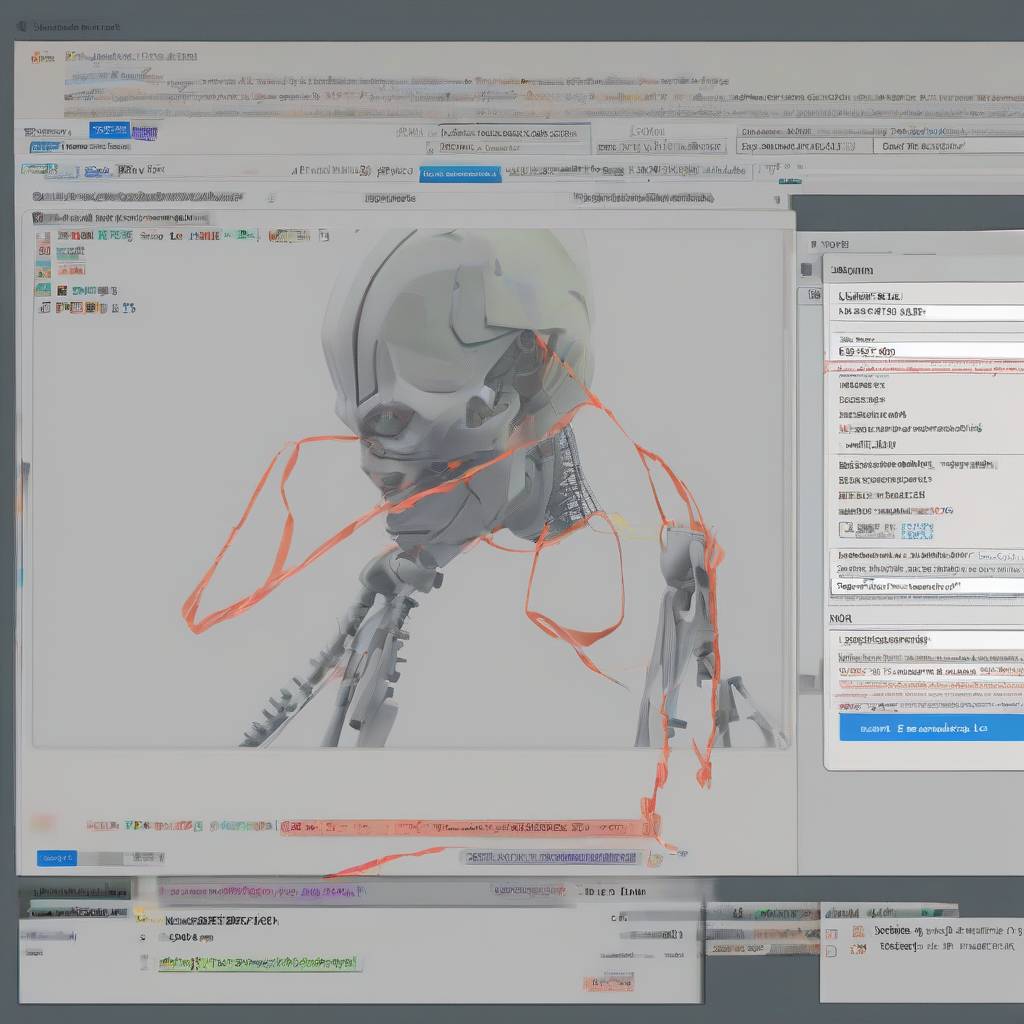Navigating the Complexities of Medical Malpractice in Atlanta: Your Guide to Finding the Right Attorney
Navigating the Complexities of Medical Malpractice in Atlanta: Your Guide to Finding the Right Attorney
Medical malpractice cases are notoriously intricate, demanding a deep understanding of medical procedures, legal precedents, and the intricacies of the Georgia legal system. If you or a loved one has suffered harm due to medical negligence in Atlanta, seeking the counsel of an experienced medical malpractice attorney is crucial. This guide provides an in-depth exploration of navigating the complexities of such cases in the Atlanta area, focusing on key factors to consider when selecting legal representation.
Understanding Medical Malpractice in Georgia
Medical malpractice occurs when a healthcare professional’s negligence or misconduct results in harm to a patient. This negligence can encompass a wide range of actions or omissions, including misdiagnosis, delayed diagnosis, surgical errors, medication errors, and failure to provide adequate care. Establishing medical malpractice requires proving four key elements:
- Duty: The healthcare professional owed a duty of care to the patient.
- Breach: The healthcare professional breached that duty of care by failing to meet the accepted standard of care.
- Causation: The breach of duty directly caused the patient’s injuries.
- Damages: The patient suffered damages as a result of the injury.
Proving these elements can be challenging, often requiring expert medical testimony to establish the standard of care and demonstrate the causal link between the negligence and the patient’s injuries. The complexities of medical terminology, procedures, and records necessitate the expertise of a lawyer experienced in medical malpractice litigation.
The Role of a Medical Malpractice Attorney in Atlanta
A skilled medical malpractice attorney in Atlanta serves as a crucial advocate for victims of medical negligence. Their responsibilities encompass a wide range of tasks, including:
- Investigating the Case: Gathering medical records, interviewing witnesses, and consulting with medical experts to build a strong case.
- Determining Liability: Identifying all potentially liable parties, including doctors, nurses, hospitals, and other healthcare providers.
- Negotiating with Insurance Companies: Attempting to reach a fair settlement through negotiation, avoiding the need for lengthy and costly litigation.
- Filing a Lawsuit: If a settlement cannot be reached, preparing and filing a lawsuit on behalf of the client, meticulously documenting all evidence and arguments.
- Preparing for Trial: Conducting thorough discovery, deposing witnesses, and presenting a compelling case before a judge or jury.
- Representing the Client in Court: Advocating for the client’s rights throughout the legal process, ensuring their interests are protected.
Beyond these core functions, a reputable attorney provides invaluable support to clients navigating the emotional and psychological toll of medical malpractice. They offer guidance, empathy, and a commitment to pursuing justice on their behalf.
Choosing the Right Atlanta Medical Malpractice Attorney
Selecting the appropriate legal representation is paramount in a medical malpractice case. Consider the following factors when choosing an attorney:
- Experience and Specialization: Look for an attorney with extensive experience in medical malpractice cases in Georgia. Specialization in this area is crucial, as it demonstrates a deep understanding of the complex legal and medical issues involved.
- Track Record of Success: Review the attorney’s past successes in medical malpractice cases. A strong track record of winning verdicts or securing favorable settlements is indicative of their skill and effectiveness.
- Client Testimonials and Reviews: Seek out online reviews and testimonials from past clients. These provide insights into the attorney’s communication style, responsiveness, and overall client experience.
- Reputation and Professional Standing: Investigate the attorney’s reputation within the legal community. Memberships in professional organizations and any disciplinary actions can provide valuable information.
- Communication and Accessibility: Choose an attorney who is communicative, responsive, and readily accessible to answer your questions and address your concerns.
- Fees and Billing Structure: Understand the attorney’s fee structure upfront. Many medical malpractice attorneys work on a contingency fee basis, meaning they only receive payment if they win the case.
The Atlanta Legal Landscape and its Impact on Medical Malpractice Cases
Atlanta’s legal landscape, with its intricate court system and experienced legal professionals, significantly influences medical malpractice cases. Understanding this context is vital for navigating the legal process effectively. Factors to consider include:
- Georgia’s Medical Malpractice Laws: Georgia has specific laws governing medical malpractice claims, including statutes of limitations, requirements for expert testimony, and caps on damages. A proficient attorney will be well-versed in these regulations.
- Court Procedures and Protocols: Atlanta courts have established procedures and protocols for handling medical malpractice litigation. An attorney familiar with these procedures can streamline the process and maximize the chances of a favorable outcome.
- Expert Witness Testimony: Medical malpractice cases heavily rely on expert witness testimony to establish the standard of care and causation. A skilled attorney will know how to select and work with credible medical experts.
- Insurance Company Tactics: Insurance companies often employ aggressive tactics to minimize payouts in medical malpractice cases. An experienced attorney will be adept at countering these tactics and protecting the client’s interests.
Common Types of Medical Malpractice Cases in Atlanta
Medical malpractice cases in Atlanta encompass a wide array of scenarios. Some of the most common include:
- Surgical Errors: Mistakes during surgical procedures, including wrong-site surgery, leaving instruments inside the patient, and causing unnecessary injury.
- Misdiagnosis or Delayed Diagnosis: Failure to properly diagnose a medical condition or delaying diagnosis, leading to worsened health outcomes.
- Medication Errors: Incorrect prescription, dosage, or administration of medication, resulting in adverse reactions or injuries.
- Anesthesia Errors: Mistakes during anesthesia administration, causing complications such as brain damage or respiratory problems.
- Birth Injuries: Injuries to infants during labor and delivery, including cerebral palsy, brachial plexus injuries, and Erb’s palsy.
- Nursing Home Negligence: Neglect or abuse in nursing homes, leading to injuries or wrongful death.
The Importance of Seeking Timely Legal Counsel
Prompt action is crucial in medical malpractice cases. Georgia has statutes of limitations that restrict the time frame within which a lawsuit can be filed. Missing these deadlines can irrevocably bar your ability to pursue legal action. Contacting a medical malpractice attorney as soon as possible after an incident is essential to preserve evidence, investigate the circumstances, and ensure compliance with legal deadlines.
Beyond Legal Representation: Support and Resources
Dealing with medical malpractice can be emotionally and psychologically taxing. Beyond the legal representation, a supportive network of resources can be invaluable. These resources can provide guidance, emotional support, and assistance with navigating the complex challenges of the legal process.
- Support Groups: Connecting with others who have experienced similar situations can provide comfort and shared understanding.
- Patient Advocacy Organizations: These organizations provide information, support, and advocacy for patients’ rights.
Navigating the intricacies of medical malpractice in Atlanta requires careful consideration of various factors. Selecting a qualified and experienced attorney is the first crucial step towards achieving a just outcome. Remember, the pursuit of justice often involves a complex process, demanding diligence, expertise, and unwavering advocacy.




